ORNL is proud of its role in fostering the next generation of scientists and engineers. We bring in talented young researchers, team them with accomplished staff members, and put them to work at the lab’s one-of-a-kind facilities. The result is research that makes us proud and prepares them for distinguished careers.
We asked some of these young researchers why they chose a career in science, what they are working on at ORNL and where they would like to go with their careers.
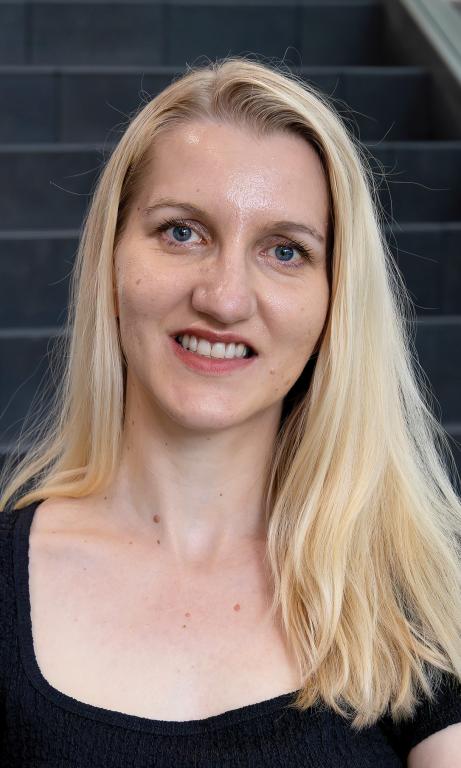
Małgorzata Makoś
Postdoc, Chemical Sciences Division
Ph.D., Computational Chemistry, Southern Methodist University
Hometown: Zawoja, Poland
What are you working on at ORNL?
My research at ORNL focuses on developing advanced computational methods and machine learning techniques that efficiently and comprehensively explore chemical reactions aiming to enhance our understanding of catalytic processes for diverse applications in materials science and beyond.
What would you like to do in your career?
In my career, I aim to advance the field of artificial intelligence in chemistry and materials science. I want to contribute to this field within research institutions or national laboratories such as ORNL, focusing on developing cutting-edge computational methods and applying them to solve complex chemical problems.
Why did you choose a career in science?
From my earliest memories, I have been fascinated by science, always wondering about the intricate nature of atoms and how they form the world around us. This curiosity has driven my passion for quantum mechanics, motivating me to pursue a career dedicated to tackling complex computational challenges.
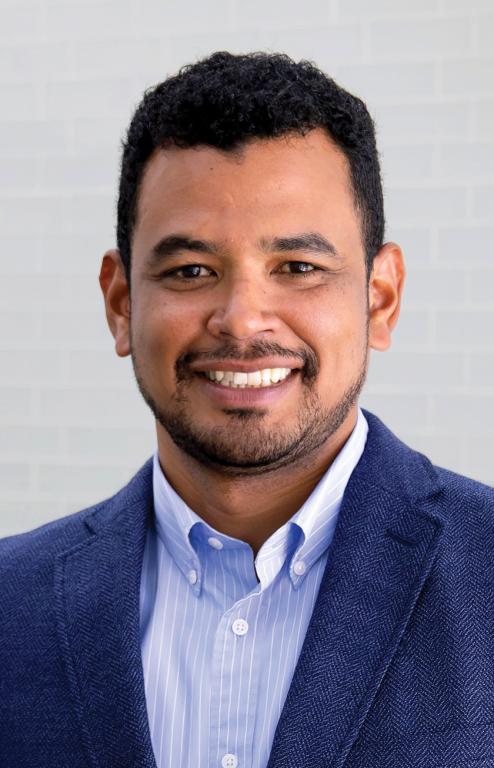
Ernesto Camilo Zuleta Suarez
Postdoc, Chemical Sciences Division
Ph.D., Energy Science and Engineering, University of Tennessee (Bredesen Center)
Hometown: Valledupar, Colombia
What are you working on at ORNL?
I'm a postdoc in the Energy Storage and Conversion group, focusing on redox flow batteries for grid storage. My research aligns with the lab's mission of pioneering energy storage science to address crucial challenges vital to U.S. economic development and security.
What would you like to do in your career?
I aspire to be an energy science researcher, innovating efficient methods for generation and storage. Beyond research, I envision contributing to education, fostering a commitment to teaching in the future. My passion lies in advancing sustainable energy solutions and sharing knowledge to inspire future generations.
Why did you choose a career in science?
Since my childhood in Colombia, an enduring passion for science and nature has been the driving force behind my motivation. I take delight in unraveling the mysteries of the natural world and exploring ways to harness its benefits for our collective advancement.
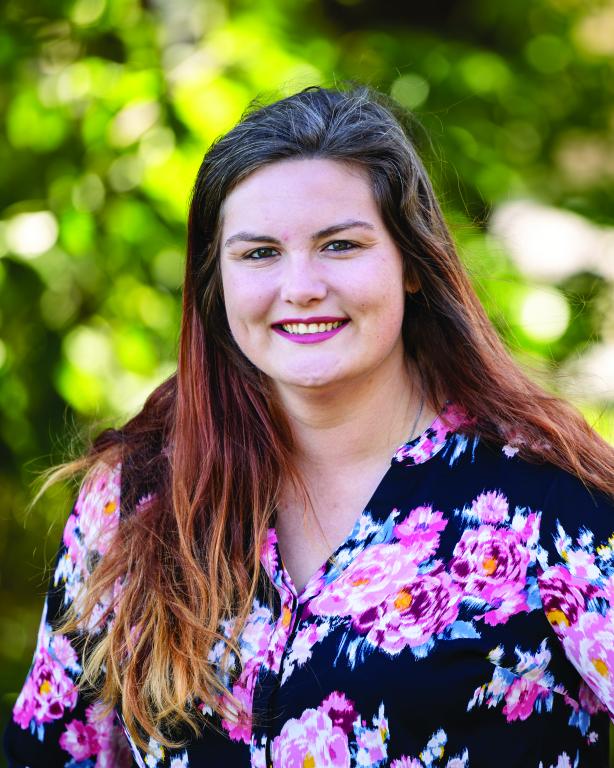
ChristiAnna Brantley
Postdoc, Radioisotope Science and Technology Division
Ph.D., Inorganic Chemistry, University of Florida
Hometown: Rocky Mount, North Carolina
What are you working on at ORNL?
My research at ORNL focuses on the development of novel radiopharmaceutical therapies where, through synthetic organic chemistry, we modify existing FDA-approved medications to incorporate radioisotopes while retaining their therapeutic efficacy. Our research merges protein inhibition with targeted alpha therapy to provide new cancer treatments to those who have no other options.
What would you like to do in your career?
In my career I would like to make a lasting impact with my efforts. I enjoy following a project from inception to completion, seeing the resulting butterfly effect of this work. I want to develop new technologies that help people, especially in their greatest times of need.
Why did you choose a career in science?
I have always been fascinated by bringing small things into focus. I am an avid macro photographer, and I find beauty in magnifying and understanding the small things, as changes in small things lead to greater impacts. I chose science, chemistry specifically, because how much smaller can you get than atoms?
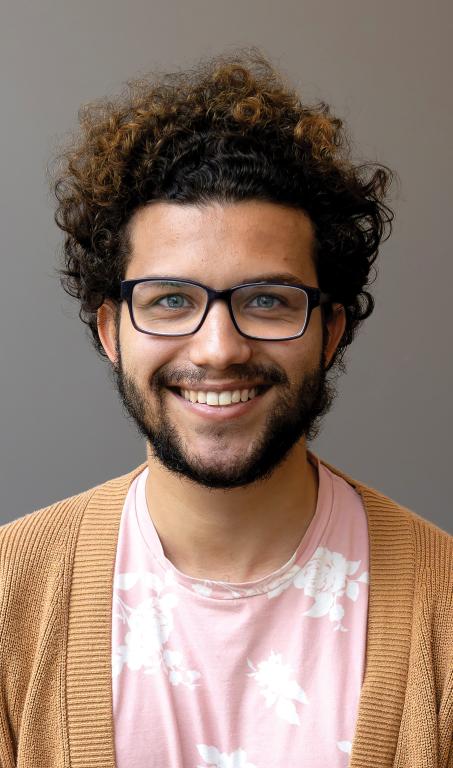
Aidan Klemm
Graduate student, Manufacturing Science Division
Ph.D. student, Chemical Engineering, Case Western Reserve University
Hometown: Chicago, Illinois
What are you working on at ORNL?
My research at ORNL is investigating the behavior of magnetic nanoparticles suspended in ionic liquids (salts that are liquid at room temperature) during microwave heating, in order to better understand the fundamental processes involved in the electromagnetic regeneration of direct air capture sorbents.
What would you like to do in your career?
I have always enjoyed teaching, so eventually I plan to become a professor of chemical engineering. However, in the two months I have been at ORNL, I have been amazed and inspired by the incredible resources and people at the lab and hope to continue working in the DOE national lab system for the foreseeable future.
Why did you choose a career in science?
Math and science courses, particularly chemistry and calculus, came more naturally to me when I was in grade school, but I struggled with writing and creative endeavors. When I finally started to explore scientific writing, those more creative subjects started to click. This — along with my passion for answering the question “why?” — drove me to a career in science.
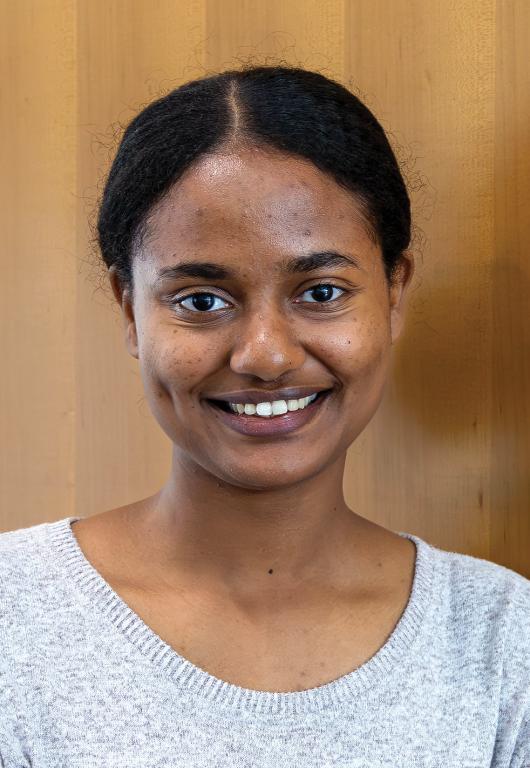
Mercy Sammy
Graduate student, Buildings and Transportation Science Division
Ph.D. student, Computational Science, Tennessee State University
Hometown: Addis Ababa, Ethiopia
What are you working on at ORNL?
My research at ORNL focuses on enhancing refraction-based air leak detectors and moisture detector devices to meet building energy codes, enhance energy efficiency, and diminish buildings' carbon footprints. I will leverage image analysis software to validate experimental work and enhance detection capability, thereby contributing to innovative energy-efficient technologies.
What would you like to do in your career?
In my career, I aspire to develop sustainable solutions that are critical in combating climate change, focusing particularly on optimizing building energy efficiency, reducing greenhouse gas emissions, and enhancing indoor air quality through engineering building energy simulation and modeling. My graduate student internship aids in cultivating expertise for impactful contributions to cutting-edge research in this field.
Why did you choose a career in science?
I chose science as my career because it infuses our lives, prompting the exploration of untouched mysteries. It aligns with my passion for problem-solving and innovation, enabling me to address urgent global issues like net-zero energy building and sustainability while pursuing what truly excites me as a researcher.
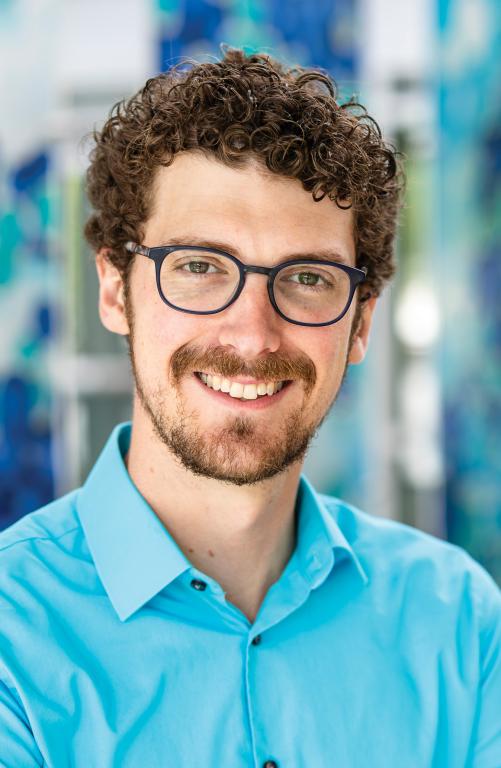
Lucas Bowman Sutton
Graduate student, Neutron Scattering Division
Ph.D. student, Biology, Rensselaer Polytechnic Institute
Hometown: Binghamton New York
What are you working on at ORNL?
Currently I am working in the Large Scale Structure Section under the guidance of Dr. Hugh O'Neill. I am studying the structure of protein complexes in the circadian clock using the Bio-SANS beamline at HFIR to differentiate proteins within these complexes.
What would you like to do in your career?
My career aspirations are to go into either industry or governmental research. I have always enjoyed biomedical research, so I would like to continue that after graduate school. However, my current field will allow me to have diverse opportunities after I graduate, which is exciting.
Why did you choose a career in science?
As a kid I always loved puzzles, which is why I originally got into research. I realized experiments are puzzles that you have to build from the ground up and solve using a variety of skills and knowledge. To be honest, I did not know a lot of careers existed in science while growing up, so my real interest in biomedical research really sparked while I was an undergrad.

